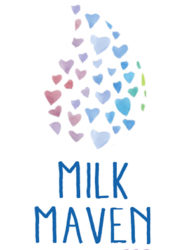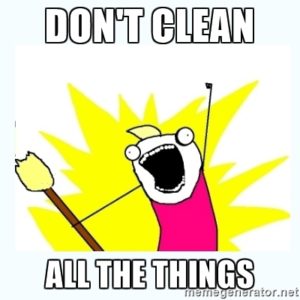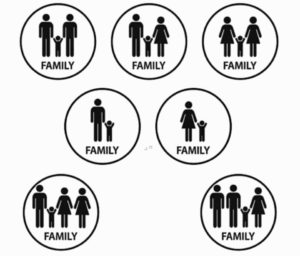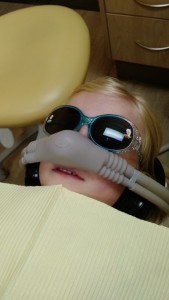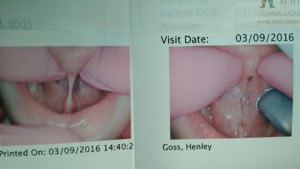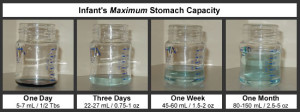Lots of moms seem to go through the same stages of breastfeeding in the early days following their baby’s birth. These range slightly from situation to situation, but mostly follow the same patterns.
Stage One: Prenatal Bliss
 You are pregnant, in the home stretch, maybe only one to two months to go. You have read a few books, gone to that breastfeeding class your hospital or birth center offered, and every woman with a snot nosed toddler and a sassy five year old in tow has told you their horror story. Still, you figure, that won’t be me, breastfeeding is NATURAL. Besides, they don’t want it as much as I do. At this point, you also probably have a lot of feelings about babies sleeping alone, toys staying out of your personal space, and still going on date nights once a week.
You are pregnant, in the home stretch, maybe only one to two months to go. You have read a few books, gone to that breastfeeding class your hospital or birth center offered, and every woman with a snot nosed toddler and a sassy five year old in tow has told you their horror story. Still, you figure, that won’t be me, breastfeeding is NATURAL. Besides, they don’t want it as much as I do. At this point, you also probably have a lot of feelings about babies sleeping alone, toys staying out of your personal space, and still going on date nights once a week.
Stage Two: Post-partum (The Hospital)
 Congratulations! You have a healthy baby! (or you don’t) and they latch right on after birth! (or they don’t) In the next 24 hours, your baby is bathed, washing away the scent of you, and making it hard for them to find you again. Then they are vaccinated, poked for a blood draw. This is followed by prodding, weighing, measuring, photographing, wrapping, and eye goo smearing. Finally, after all that, handed back to you…1-3 hours later. This is if everything goes right and you don’t opt for unnecessary surgeries!
Congratulations! You have a healthy baby! (or you don’t) and they latch right on after birth! (or they don’t) In the next 24 hours, your baby is bathed, washing away the scent of you, and making it hard for them to find you again. Then they are vaccinated, poked for a blood draw. This is followed by prodding, weighing, measuring, photographing, wrapping, and eye goo smearing. Finally, after all that, handed back to you…1-3 hours later. This is if everything goes right and you don’t opt for unnecessary surgeries!
Stage Three: Bliss Bubble
You are floating in a bliss bubble, and so is everyone else you know. They are all crowded around, asking to hold the baby. If the baby latches, you may not even notice it is bad, or that it hurts (my first born literally gave me hickies on 80% of my breast) until the nurses start bothering you. Everything is measured: weight, blood sugar levels, jaundice levels, body temperature, how often/how much you are nursing, and poop and pee output. By the way, their answer for all of this, is supplementation.
Meanwhile, it is really hard to nurse on demand when everyone you have ever known is in your postpartum room, holding your new baby. That is when the nurses and doctors aren’t doing their rounds.
 This is about half of my IMMEDIATE family. I know what I am talking about.
This is about half of my IMMEDIATE family. I know what I am talking about.
Stage Four: Hospital Help
 At this point you may see the hospital’s Lactation Consultant. Or, you may see a nurse who once sat through a two hour course online, who calls herself the Lactation Consultant. If you are lucky, she will help you with latch and she will give you great tips on how to better position the baby. If you are extremely lucky, and the hospital is empty, she will look at the baby’s oral anatomy as well as yours and make sure everything is working properly. If you catch her on a good day, she will treat you like a human. Often, none of this actually happens.
At this point you may see the hospital’s Lactation Consultant. Or, you may see a nurse who once sat through a two hour course online, who calls herself the Lactation Consultant. If you are lucky, she will help you with latch and she will give you great tips on how to better position the baby. If you are extremely lucky, and the hospital is empty, she will look at the baby’s oral anatomy as well as yours and make sure everything is working properly. If you catch her on a good day, she will treat you like a human. Often, none of this actually happens.
Stage Five: Things Change
 You arrive home, finally. Perhaps you are already are supplementing or using a nipple shield just to get out of the hospital. Maybe this was for good reason, or maybe this was a band-aid that was put on a problem that was ignored. You are tired. You are grateful to be home. You are ready to start enjoying your baby. His latch is great! Everything is going so well!
You arrive home, finally. Perhaps you are already are supplementing or using a nipple shield just to get out of the hospital. Maybe this was for good reason, or maybe this was a band-aid that was put on a problem that was ignored. You are tired. You are grateful to be home. You are ready to start enjoying your baby. His latch is great! Everything is going so well!
And then, The Milk Fairy arrives! Suddenly, your breasts have swollen to the size of bowling balls and the baby won’t latch. Or, your milk isn’t coming in and the baby cries all day. Your nipples may be sore, cracked, even bleeding. You are worried the baby isn’t latching correctly, or that you just don’t know how to do this. You saw a Lactation Consultant in the hospital, do you really need a home visit from one now?! You call the hospital. You realize you can not talk to the kind and wonderful LC you talked to when you were there anymore. That is against the rules.
Stage Six: Home Help
You find the number for a International Board Certified Lactation Consultant (IBCLC) in private practice. You make an appointment. She will come to your home, spend as long as it takes with you and your baby making sure everything is working properly, and give you a care plan. She will communicate to your healthcare providers. She will empower you to make good decisions based on your goals and your baby’s needs. Best yet, your insurance is required to reimburse you for her services, just like they covered that shiny new pump you received a few weeks ago.

Stage Seven: Healing and Learning
 Lactation Consultants can’t make everything all better with just one visit. They can, however, empower you to do so. The first weeks out of the hospital are difficult. You don’t have to go it alone. There is still going to be a learning process and a period of really getting to know your baby, their likes and dislikes and quirks. There is also a getting to know yourself as a mother period, so be kind to your body, to your soul, this all takes time, this is not a skill you just know how to do. And you are NOT alone.
Lactation Consultants can’t make everything all better with just one visit. They can, however, empower you to do so. The first weeks out of the hospital are difficult. You don’t have to go it alone. There is still going to be a learning process and a period of really getting to know your baby, their likes and dislikes and quirks. There is also a getting to know yourself as a mother period, so be kind to your body, to your soul, this all takes time, this is not a skill you just know how to do. And you are NOT alone.
Stage Eight: Breastfeeding Boss
You are pain free! You can now cook while you tuck Junior under one arm, latched the whole time. You no longer fear public places, or feeding time, or returning to work. You are a pro! Your baby is growing, and thriving, and starting to smile at you while he nurses. You might even be thinking, you could do this all over again in a few years…


